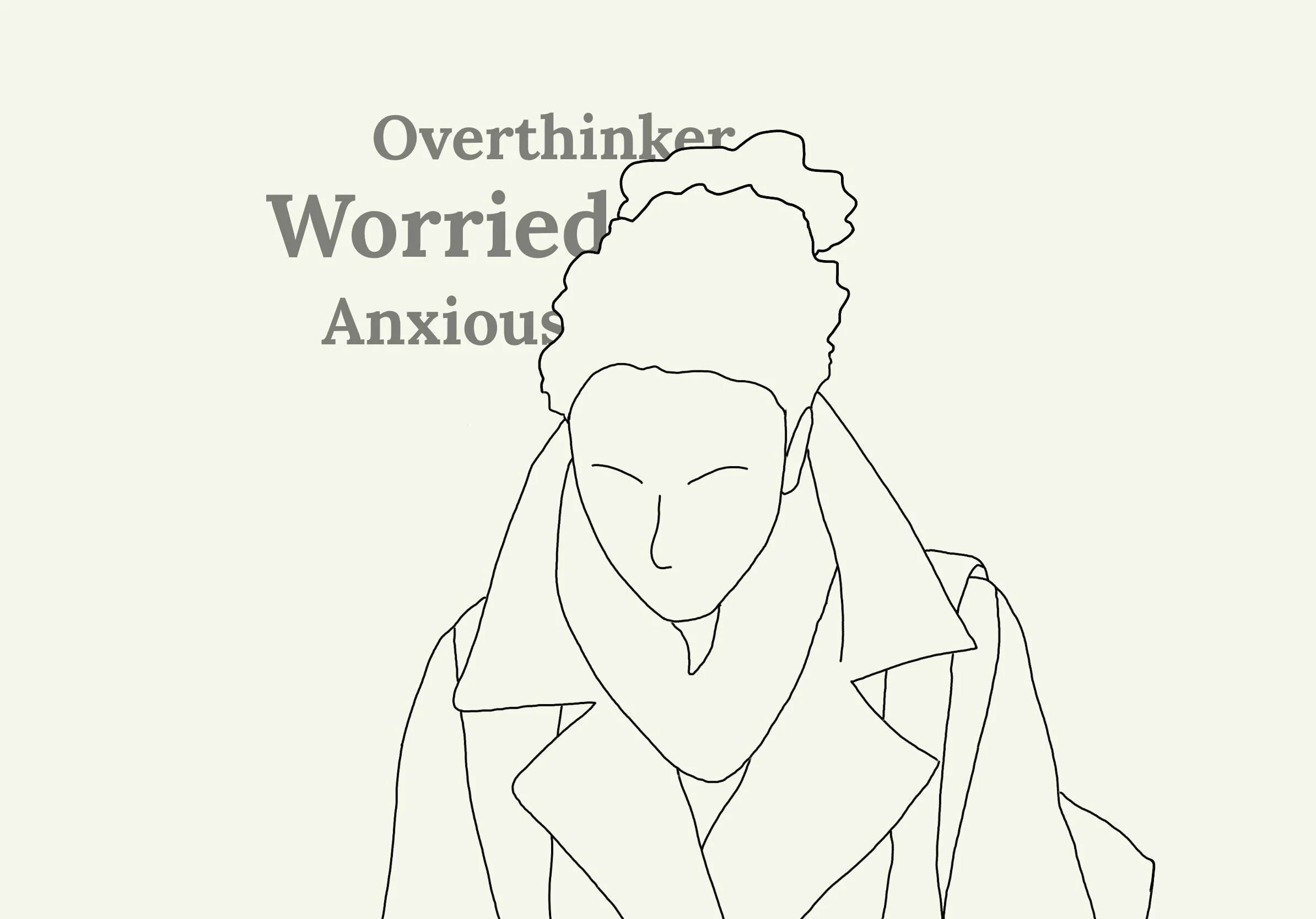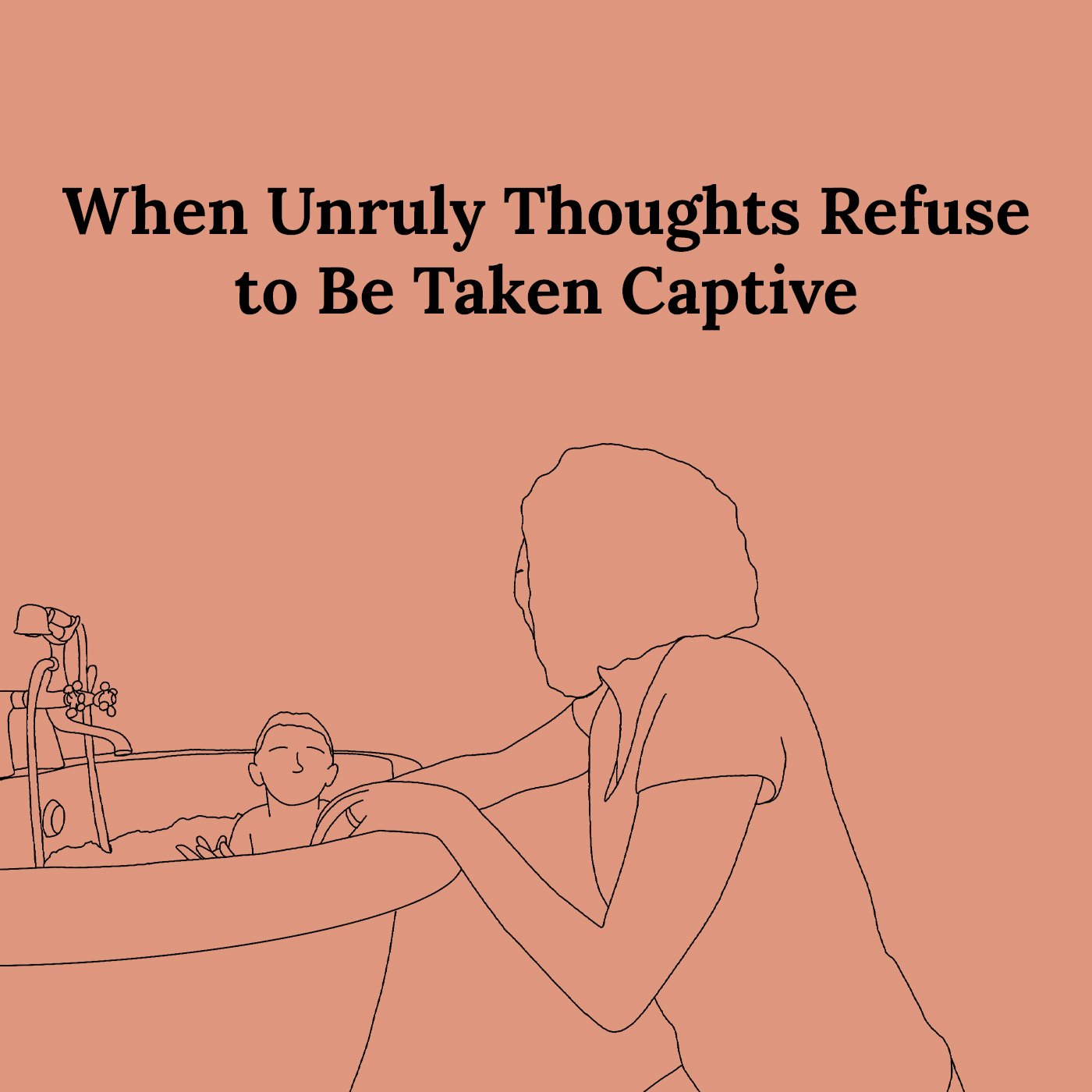I’m Anxious and I Know It: Mary’s Story
Mary was a little girl when the labels first appeared: Overthinker. Worrier. Anxious.
She would spend hours in primary school thinking of worst-case scenarios, and admits that she can’t remember a time when she didn’t feel anxious.
By the time Year 11 rolled around, Mary’s anxiety was a big part of her life. She remembers having an argument one day with her parents where they eventually sat her down and encouraged her to see a mental health professional. “How you’re reacting right now,” they pressed, “isn’t normal. The things you’re worrying about aren’t things you should be worrying about. You need help.”
Through their guidance, Mary started seeing a psychiatrist, and went on medication for anxiety. “Medication was absolutely the right choice for me,” Mary shared, “but I know everyone has a different journey.”
Despite her lifelong journey with anxiety, Mary counts herself grateful that her struggle has only deepened her relationship with God.
“If anything,” she explained, “realising there was something wrong when I was 16 gave me a greater reason to put my faith in a God who loved me through all of it, without any need for me to be perfect or understand why.”
Doing the ‘Quiet Work’
After finishing school, Mary travelled from Australia to go to college in the US, and took up a job opportunity in radio there. During that season of figuring things out on her own, away from family and friends, Mary describes her relationship with God as one of growing intimacy when He was all she had.
“God and I did a lot of quiet work in those years,” she says. “I don’t know why I fell into God’s hands so deeply in those moments, but I did. I can count time and time again when I didn’t know what to do and I just said ‘God, help’. Even though He didn’t solve everything for me in those moments, I can see looking back just how much He guided me in those times. It wasn’t through anything I was doing, but purely because I didn’t know what to do and I brought that to Him. ”
In 1 Kings 19:11, God tells Elijah to go and stand on the mountain because His presence was about to pass by. Elijah goes and waits for the Lord, and while he’s on the mountain, a powerful wind comes and tears the rocks apart – but God wasn’t in the wind. Then, an earthquake comes, and after it, a fire – but God wasn’t in those, either. Finally, God reveals Himself: “And after the fire came a gentle whisper. When Elijah heard it, he pulled his cloak over his face and went out and stood at the mouth of the cave” (1 Kings 19:12-23).
Think about that: the God of the Universe came in a gentle whisper. Often, we can get caught up in thinking that our relationship with God needs to be big and loud and flashy. We wait for Him to reveal Himself in crazy ways – and sometimes He does – but more often than not, He’s waiting for us in the still, quiet moments where it’s just us and Him.
Now, Mary describes her quiet times with God like a conversation between close friends. “I talk to God as if I’m texting a friend on my phone,” Mary shared with a giggle. “But to me, that’s exactly who my God is; He’s the one I trust to text at any time of the day or night. For me, that’s where my relationship with God thrives; when I’m able to acknowledge that He’s real and He’s right there with me. Everyone has their own styles of communicating with God, and that’s what has worked for me.”
Known by God
Isn’t it freeing, when we realise that God knows us?
In Psalm 139 we are reminded that God created our inmost being, and planned our days even before we were born. He doesn’t make mistakes. He knows who we are, and the things we wrestle with. Instead of praying to Him, ‘Please God, take this struggle away from me’, we can have an attitude of thankfulness, praising God for making us the way we are.
Throughout Mary’s life, she’s been labelled with many things: Anxiety Disorder. ADHD. A worried person. But these labels don’t concern Mary – in fact, she sees them as an opportunity to be honest with others about who she is.
“I’ve realised those labels only have the power you give them.”
Mary explained that when we’re able to acknowledge our mental health struggles and we’re vulnerable enough to show people who we are, it fosters a place of acceptance where others have the freedom to share openly, too.
Far more important than any label or condition we’ve been given are the names that God has for us. When we define our identity by who He says we are, we’re better able to walk in the freedom of being intimately known and deeply loved.
And who does God say we are? We are His children (Romans 8:14). Loved (Romans 5:8). Liberated (Galatians 5:1). Righteous (2 Corinthians 5:21). Redeemed (Isaiah 43:1). Forgiven (1 John 1:9).
In the Highs and the Lows
Although Mary has grown in confidence and understanding in her relationship with God over the years, anxiety still has a presence in her life. “I’m a big believer that journeys of healing are not linear,” Mary shared. “Not that a journey of mental health is always one of healing, because a lot of the time it is lifelong. We’re not working towards a magical state where we’re never worried about things, but we are learning to give it to God and turn to Him in those moments.”
Something that rings true from Mary’s story is that there is real richness in being able to say that our relationship with God isn’t just one of the high points; that it’s also in the low points, and even the mundane, day-to-day normalcy of life.
Mary shared with us how she takes encouragement from the story of Elijah in 1 Kings 19:4-8. Elijah was afraid and was running for his life from Jezebel. Only a day into the wilderness, Elijah collapsed and prayed that God would take his life. He fell asleep, and was awoken by an angel telling him, “Get up and eat” (1 Kings 19:5). Elijah ate and drank, and then fell back asleep, and once more, an angel woke him up and told him to eat.
“The angel took care of Elijah in that moment, but then also allowed him to sleep,” Mary explained. “God didn’t come to Elijah to push him to persevere and continue the journey. Instead, He spent the time providing Elijah with what he needed in those moments.”
In the same way, God doesn’t promise to take our struggles away – but He does promise to give us the provision we need to get through them. Jesus encouraged us to trust in His provision in Matthew 6:26; “Look at the birds of the air; they do not sow or reap or store away in barns, and yet your heavenly Father feeds them. Are you not much more valuable than they?”
As we learned from Mary’s journey with mental health, trusting in God doesn’t mean that we won’t face difficulties.
What it does mean is that when we struggle, we can lean into a God who knows and loves us intimately – in the highs and the lows.
Mary is a young Aussie radio host living in Melbourne, Australia. Recently, we sat down with Mary to ask her about her journey with anxiety and faith. You can listen to that podcast episode here.













I’d never been afraid to drive, and here I was, sitting in my own driveway, hyperventilating. I started the engine, and as it burst to life, I burst into tears. Something gripped my chest tightly, and it wasn’t going away. All I knew was that I couldn’t get back on the road. It wouldn’t be safe.